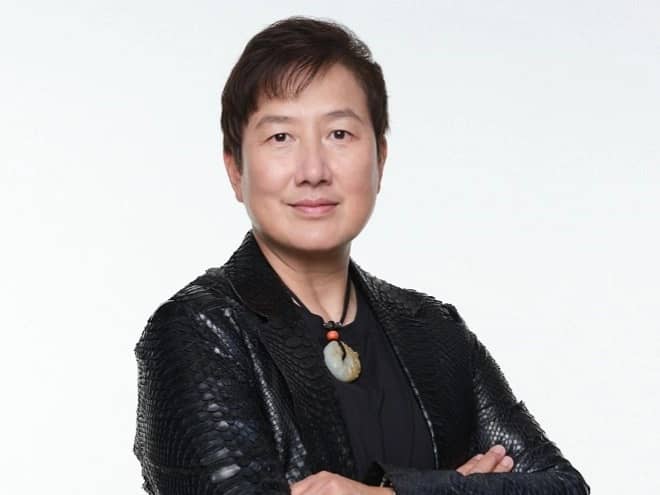订阅 wiki
Share wiki
Bookmark
Angelina Kwan
0%
Angelina Kwan
Angelina Kwan是全球自营交易公司IMC亚太区的高级顾问,以及她创立的咨询公司Stratford Finance Limited的董事总经理。 [1] [2]
教育背景
Kwan拥有美国和香港多所院校的高级学位。她获得了哈佛法学院的法学硕士(LLM)学位和佩珀代因大学的工商管理硕士(MBA)学位。她的法律教育还包括香港大学和曼彻斯特城市大学联合颁发的法学学士(LLB)学位。她毕业于南加州大学,获得了金融和会计学士学位。 [3] [4] [14]
职业生涯
Angelina Kwan的职业生涯始于专业服务公司毕马威(KPMG),之后她进入主要的金融和监管机构担任高级职务。她曾在香港证券及期货事务监察委员会(香港证监会)担任高级管理和董事职位,该委员会是香港证券和期货市场的主要监管机构。随后,她加入香港交易及结算所有限公司(香港交易所),该公司是香港联合交易所的控股公司,她负责建立和管理监管合规部门。她在传统金融领域的经验还包括在全球金融服务公司Cantor Fitzgerald担任高级职务,这为她后来从事区块链技术工作奠定了基础。
2017年,Kwan转型进入数字资产行业,在多家著名的加密货币公司担任高管。她曾担任加密货币衍生品交易所BitMEX的全球首席运营官,负责监督该公司在全球的运营。后来,她加入数字资产金融服务公司HashKey Group,担任集团首席运营官和集团首席风险官双重职务。在她于HashKey任职期间,该公司获得了香港证监会颁发的第二张原则性批准,可以运营虚拟资产交易平台。Kwan是香港虚拟资产服务提供商(VASP)监管框架的基础立法和指导方针的主要贡献者。
目前,Kwan担任全球做市和自营交易公司IMC亚太区的高级顾问。她还是Stratford Finance Limited的创始人兼董事总经理,这是一家为经纪公司、基金经理和科技公司提供金融服务和数字资产领域监管和运营事务咨询的公司。 [8] [2] [3] [5] [6] [7] [14]
董事会成员和隶属关系
Kwan积极参与多个政府任命的、非营利性、企业和学术董事会及委员会。
政府和公共服务
Kwan曾在香港政府任命的多个机构任职。她是金融服务发展委员会(FSDC)新业务委员会的成员,该委员会是一个咨询机构,旨在促进香港金融服务业的进一步发展。她还担任卫奕信勋爵文物信托的董事会成员。她过去的政府任命包括在妇女事务委员会、可持续发展委员会和行政上诉委员会任职。 [3] [5]
非营利和教育委员会
在非营利领域,Kwan是香港妇女基金会的主席,该组织致力于改善香港妇女和女孩的生活。她还是香港盲人辅导会、香港证券及投资学会(HKSI)和卧龙岗大学香港分校的董事会成员。此外,她还是Web3 Harbour的创始董事,该组织专注于Web3生态系统的发展。 [4] [2]
公司董事会
Kwan在多家上市公司和私营公司担任董事。她是其士国际集团有限公司(港交所:0025)和苏黎世人寿保险(香港)有限公司的董事会成员。 [8]
学术和专业隶属关系
Kwan担任香港理工大学会计及金融学院的荣誉副教授。她是香港金融管理局(金管局)金融学院的成员,也是香港会计师公会的资深会员。她还是Risky Women的创始成员,这是一个面向风险、监管和合规领域女性的全球网络。 [9] [2]
专业资格
Kwan是一位拥有多司法管辖区认证的会计师。她拥有美国、香港、澳大利亚和新西兰的注册会计师(CPA)资格。她还被公认为澳大利亚和新西兰的特许会计师(CA)。 [4] [3]
公众参与
作为金融监管方面的专家,尤其是在数字资产方面,Kwan在国际上讲授与VASP框架和其他监管问题相关的课题。她经常在行业会议上发表演讲,如米尔肯研究所的全球投资者研讨会、香港共识大会和日本的GFTN论坛。 [10] [7]
关于治理和监管,Kwan曾表示:
“监管有助于保护投资者,并增强对亚洲金融市场稳定性的信心。对于金融服务公司而言,良好的治理对于成功运营至关重要。确保问责制和合规性的明确协议和程序也有助于管理风险和建立企业声誉。驾驭复杂的监管框架并建立良好治理的基础至关重要,但绝非易事。这就是Stratford Finance存在的意义——指导、引导和帮助实施适当的监管治理。” [2]
访谈
金融科技领域的女性:Angelina Kwan #01
2022年2月24日,Angelina Kwan参加了香港投资推广署YouTube频道的一个访谈节目,她在节目中讨论了金融科技领域的性别代表性以及香港金融科技行业的发展。
在访谈中,Kwan指出,结构性和文化性障碍继续影响女性接受STEM教育以及在金融和科技领域担任领导职务的机会。她提到了相关研究,这些研究表明,高级职位中女性比例较高的公司通常表现出更强的业务成果和改善的工作场所动态。她还强调了董事会组成是影响组织方向的一个因素,并以英国和澳大利亚为例,说明这些司法管辖区已经推进了扩大参与的政策。
Kwan结合她在1990年代以来在香港的职业生涯,解释说,指导、专业网络和香港的国际环境对她的职业发展产生了影响。她还强调,香港需要监管清晰和法律框架现代化,以支持数字资产和区块链技术的发展。此外,她还指出,必须持续投资于STEM教育,以培养未来人才,并保持香港作为金融和科技中心的地位。 [15]
合规的未来 #02
2022年1月20日,Angelina Kwan参加了Risky Women播客,参与了一集名为“合规的未来”的节目。在这次讨论中,她概述了自己的职业背景,并对监管环境提出了看法。Kwan描述了她在美国和亚洲的工作经历,包括在香港证券及期货事务监察委员会(香港证监会)和香港交易及结算所(香港交易所)担任高级职务,这些经历如何影响了她对治理、风险和合规(GRC)的看法。
在访谈中,Kwan指出,合规的职能已经从仅仅作为一种控制机制转变为金融机构内部的一种协作组成部分。她提到了新兴技术(如人工智能、区块链和监管科技)在重塑合规实践中的作用,同时强调专业人士需要保持适应性。她还讨论了香港金融体系的结构,该体系涉及包括香港证监会、香港金融管理局(金管局)和保险业监管局在内的多个监管机构之间的协调。
Kwan进一步谈到了治理中的多样性问题,她认为可能需要采取强制性措施来加强董事会的代表性。她还为进入该领域的专业人士提供了指导,建议他们适应不确定性,并在管理职业挑战时确定优先事项。最后,她评论了经济衰退的可能性,但表示合规、治理和风险管理仍将是金融市场的核心关注领域。 [16]
发现错误了吗?
